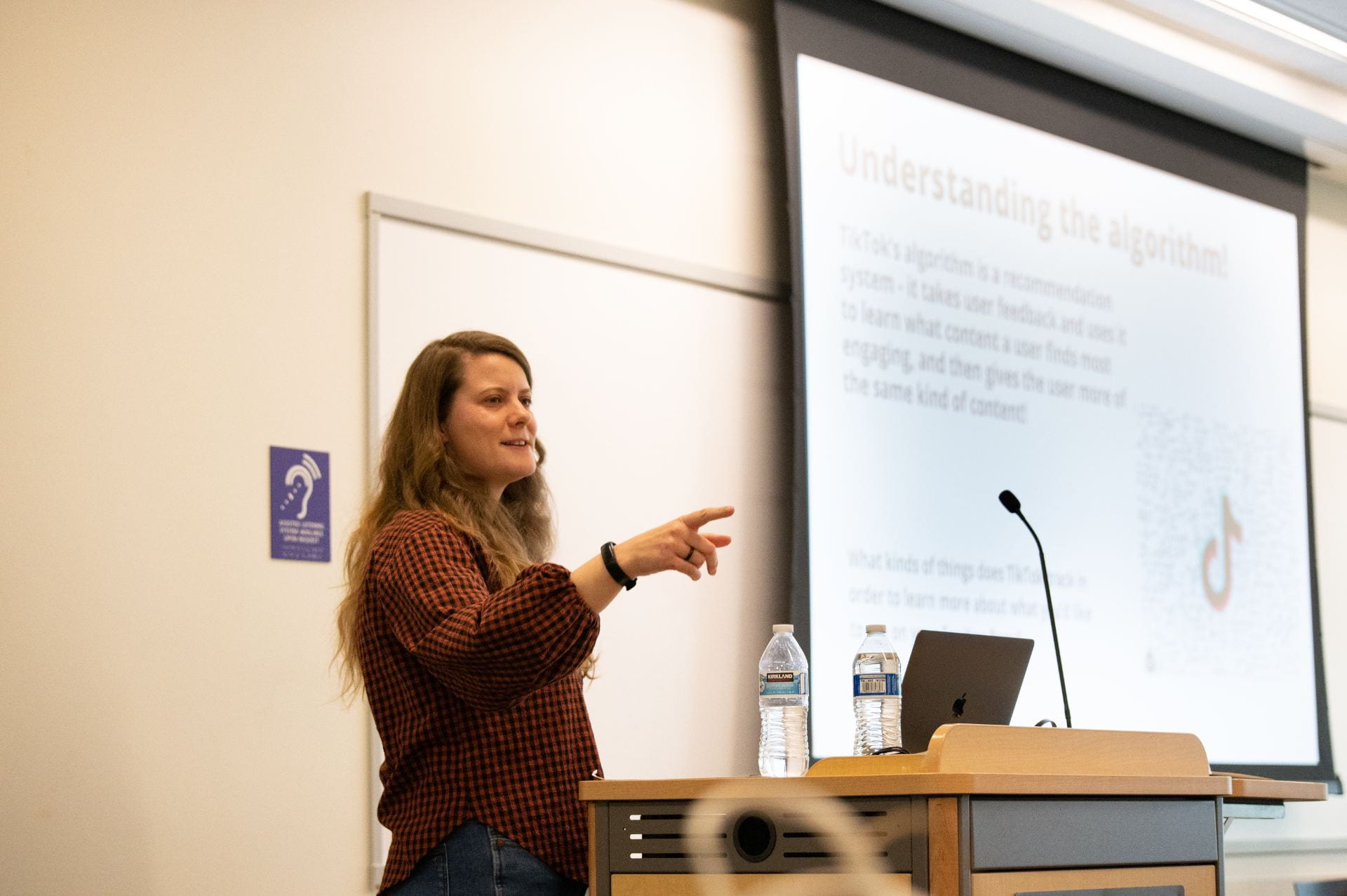Center for an Informed Public postdoctoral scholar Rachel Moran-Prestridge, who studies communication, misinformation and trust in information, has been promoted to a new role as senior research scientist.
Since starting at the University of Washington as a CIP postdoc in 2020, Moran-Prestridge has published 25 articles and other contributions in esteemed peer-reviewed journals and been interviewed by numerous news organizations, including The New York Times, The Washington Post, National Public Radio, Reuters, Vox, Axios and The Seattle Times, on timely topics including problematic information, digital wellbeing, trust and safety and content moderation.
In an announcement, CIP co-founder Emma S. Spiro, an Information School associate professor, observed how Moran-Prestridge’s work seeks to understand “how misinformation impacts different communities and how to design interventions that account for socioeconomic and cultural differences and that work towards social justice and equitable democratic participation.”
Moran-Prestridge started her work at UW in 2020 as part of the CIP’s first cohort of postdoctoral scholars following the completion of her doctoral studies at the University of Southern California’s Annenberg School of Communication.
Current projects Moran-Prestridge is involved in include work funded through a UW Population Health Initiative Tier 1 pilot grant that looks to address current gaps to properly document the impacts of myths about abortion on healthcare providers and other professionals from related fields in the Washington, Wyoming, Alaska, Montana and Idaho (WWAMI) region.
“This last year created a really fragmented environment, where some states were making big decisions to limit access to abortion care. These big moments in time create uncertainty for people, under which misleading information can really thrive,” she said in a Population Health Initiative program blog post about the project. “We wanted to understand how this trickles down and impacts people in their attempts to give or get abortion-related care.”
Examples of Moran-Prestridge’s scholarship while at the CIP:
- In “Sending news back home: Misinformation lost in transnational social networks,” an article published in the Proceedings of the AMC on Human-Computing Interaction, Vol. 7, Issue CSCW1 in April 2023, Moran-Prestridge, with co-authors Nguyễn and CIP graduate research assistant Linh Bui, used qualitative coding of social media data and a thematic inductive analysis inspired approach to investigate how misinformation proliferated through social media sites, such as Facebook, and the types of informational content, and specific misinformation narratives, that spread across the Vietnamese diasporic community during the 2020 U.S. election. Through their research, which was informed by the work of organizations such as Viet Fact Check, The Interpreter, and other community-led initiatives working to provide fact-checking and online media analysis in Vietnamese and English, they present and discuss salient misinformation narratives that spread throughout Vietnamese diasporic Facebook posts.
- In “Navigating information-seeking in conspiratorial waters: Anti-trafficking advocacy and education post QAnon,” another article published in the Proceedings of the AMC on Human-Computing Interaction, Vol. 7, Issue CSCW1 in April 2023, Moran-Prestridge, with CIP-affilated co-authors Stephen Prochaska, Izzi Grasso and Isabelle Schlegel, conducted in-depth interviews with members of the public and professionals involved in anti-trafficking activism and explore how individuals find trustworthy information about human trafficking in light of the public spread of misinformation.
- In “Designing trust: Design style, political ideology, and trust in “fake” news websites,” a June 2022 article published in the journal Digital Journalism, co-authored with Northwestern University assistant professor TJ Billard, Moran-Prestridge explores how the relationship between design and trust is more complicated in a digital era as agents of mis- and dis-information produce “fake” news outlets that look trustworthy, appropriating the design qualities of credible news outlets.
Photo at top: Rachel Moran-Prestridge facilitates a MisinfoDay 2023 session sharing insights about TikTok’s algorithm. (Photo by Doug Parry / UW Information School)




